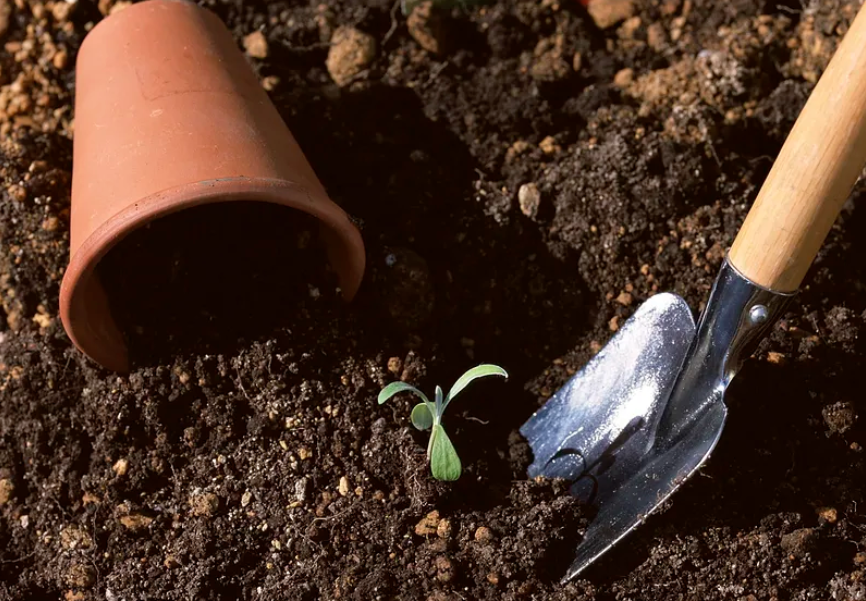Occasionally, a story comes along with some major creep factor. You can’t quite put your finger on it, but the creep factor exists.
Such was the case with a recent “Daily Wire” article explaining that New York is the sixth state to legalize the composting of human remains. Apparently, the old dark joke about turning into worm dirt when we die is becoming reality not only in New York but in five other progressive states as well.
Some forms of human composting only use an eighth of the energy of cremation or conventional burial. The process is “more environmentally friendly,” California Assemblymember Cristina Garcia (D-CA) says, noting that “with climate change and sea-level rise as very real threats to our environment, this is an alternative method of final disposition that won’t contribute emissions into our atmosphere.”
It is the dehumanizing aspect of this story that makes it creepy, for it values human beings only for the sum of their parts and for their convenience to others. Perhaps it’s not surprising that the same states that have enacted legislation to accommodate the ability to plant a tree in Mawmaw’s remains are the same states that see some of the most ardent pushes for abortion.
Human composting takes place when the decedent is placed in a box “surrounded by wood chips, alfalfa, and straw for one month” to enhance “‘change on the molecular level resulting in the formation of nutrient-dense soil,’” the “Daily Wire” explains. Lest we forget, it’s a common practice to fertilize farm fields with manure. It seems we’ve gone so far down the rabbit hole that we no longer think twice about relegating a loved one’s remains to the same level as nitrogen-rich manure.
Such disrespect for life is also pagan in nature. “Pantheists have argued that everything can be reduced to matter, God is everything and everything is God, and that every existing entity is only one Being,” Baptist Pastor Josh Buice, president of G3 Ministries tells the “Daily Wire.” “Under this view, there is no difference between wood chips, alfalfa, and a human body,” Buice explains. “From the earliest of times, the human body has been considered sacred. The rationale is based on what is known as the imago Dei, which affirms the fact that God created every person equally in his own image.” In essence, the human form is special, not a mistake, aberration, or a piece of clay to be molded.
The idea of composting soil made from humans is just another way of demanding that science dehumanize us. We’ve seen this first in cries for abortion. Then we saw it in demands for euthanasia, which in Canada now extends to those with mental illness. Even the move toward “gender fluidity” does this by indicating that the human body is wrong and must be molded to fit one’s truth.
Such thoughts and practices were once the stuff of science fiction and dystopian movies but are now the reality of a progressive agenda. We are becoming like the 1973 movie “Soylent Green,” where rampant overpopulation, pollution and global warming create severe shortages of food and water — causing the poor to be fed highly processed wafers, among which is Soylent Green — and where government-run clinics are used for assisted suicide to ease population growth. When one of the lead characters, Detective Thorn (Charlton Heston), realizes to his shock and horror that the superfood the government is feeding the masses is made from human remains, he tries to warn the world by shouting, “Soylent Green is people!” And yet, here we are some 50 years after the release of “Soylent Green,” discussing a similar form of creepy dehumanization. Only this time it’s not science fiction, it’s true.
In a society that has dehumanized human life, it is increasingly easy to move to a place where the most vulnerable in society — the unborn, the sick and infirm, and the mentally ill — can just be modified or put out of their misery. And now once they’re out of our way, we can simply turn them into a bag of potting soil and fertilize the raised beds where we grow tomatoes to feed the family. Soylent Green is people indeed!
Am I overreacting? You be the judge. But I do know that what we do with living, breathing, soul-filled humans — or their remains once they’ve passed — should never be based solely on questions of cultural convenience, finances, logistics or selfish emotion.
In my view, the composting of human remains to fertilize a garden is just one more step in the dehumanization of humanity.
But then, maybe dehumanizing is what was intended all along.
To contact Phil or request him for a speaking engagement, go to www.rightsideradio.org. The views and opinions expressed here are those of the author and do not necessarily reflect the policy or position of 1819 News. To comment, please send an email with your name and contact information to Commentary@1819News.com.
Don't miss out! Subscribe to our newsletter and get our top stories every weekday morning.










